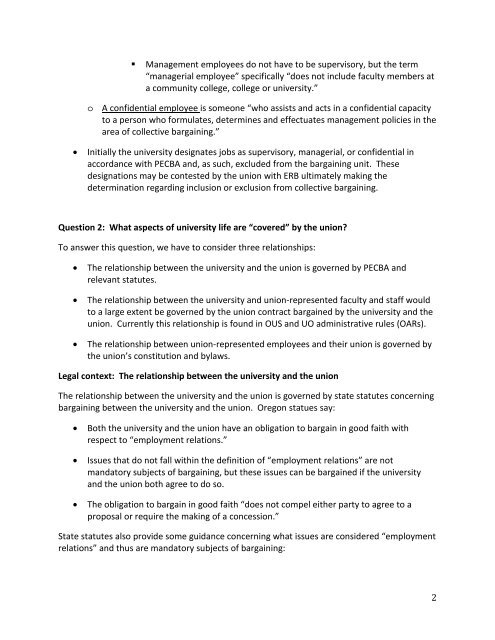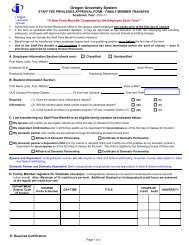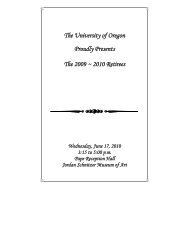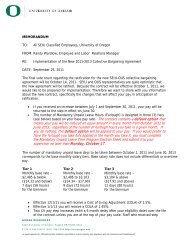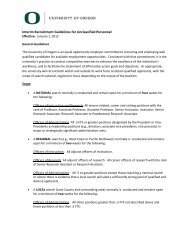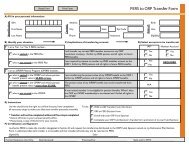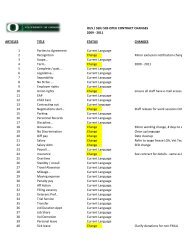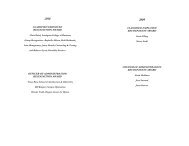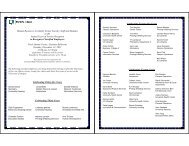Talking Points for February 5, 2010 Town Hall Meeting, Linda King ...
Talking Points for February 5, 2010 Town Hall Meeting, Linda King ...
Talking Points for February 5, 2010 Town Hall Meeting, Linda King ...
You also want an ePaper? Increase the reach of your titles
YUMPU automatically turns print PDFs into web optimized ePapers that Google loves.
Management employees do not have to be supervisory, but the term<br />
“managerial employee” specifically “does not include faculty members at<br />
a community college, college or university.”<br />
o A confidential employee is someone “who assists and acts in a confidential capacity<br />
to a person who <strong>for</strong>mulates, determines and effectuates management policies in the<br />
area of collective bargaining.”<br />
• Initially the university designates jobs as supervisory, managerial, or confidential in<br />
accordance with PECBA and, as such, excluded from the bargaining unit. These<br />
designations may be contested by the union with ERB ultimately making the<br />
determination regarding inclusion or exclusion from collective bargaining.<br />
Question 2: What aspects of university life are “covered” by the union?<br />
To answer this question, we have to consider three relationships:<br />
• The relationship between the university and the union is governed by PECBA and<br />
relevant statutes.<br />
• The relationship between the university and union-represented faculty and staff would<br />
to a large extent be governed by the union contract bargained by the university and the<br />
union. Currently this relationship is found in OUS and UO administrative rules (OARs).<br />
• The relationship between union-represented employees and their union is governed by<br />
the union’s constitution and bylaws.<br />
Legal context: The relationship between the university and the union<br />
The relationship between the university and the union is governed by state statutes concerning<br />
bargaining between the university and the union. Oregon statues say:<br />
• Both the university and the union have an obligation to bargain in good faith with<br />
respect to “employment relations.”<br />
• Issues that do not fall within the definition of “employment relations” are not<br />
mandatory subjects of bargaining, but these issues can be bargained if the university<br />
and the union both agree to do so.<br />
• The obligation to bargain in good faith “does not compel either party to agree to a<br />
proposal or require the making of a concession.”<br />
State statutes also provide some guidance concerning what issues are considered “employment<br />
relations” and thus are mandatory subjects of bargaining:<br />
2


